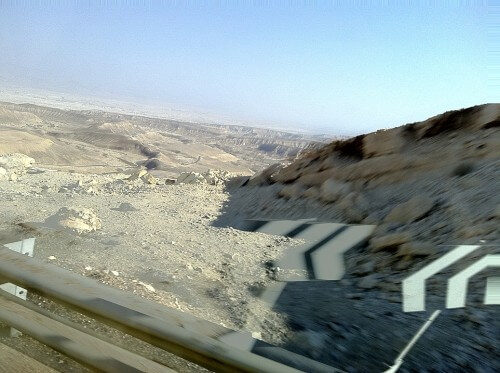At the climate conference in Marrakesh, they also dealt with the issue of desert agriculture, among other things. Soils in arid areas make up about 40% of the world's surface and are found on all continents, in these areas live about two billion people who own 45% of the cultivated areas there, which means that almost half of the agricultural areas are in arid areas.

On the sidelines of the climate conference in Marrakesh (Morocco), members of the United Nations International Fund for Agricultural Development (IFAD) emphasize the need to restore soils in arid areas that have been damaged by global warming.
Soils in arid areas make up about 40% of the world's surface and are found on all continents, in these areas live about two billion people who own 45% of the cultivated areas there, which means that almost half of the agricultural areas are in arid areas.
In a report entitled "The benefits of drylands, protecting the environment by strengthening its people" the foundation's president says that "drylands are the key to food security for all the earth's inhabitants. The importance of soils in arid areas is significant, therefore harming them will have negative economic consequences, if the transformation of soils in arid areas into a desert is not stopped, hundreds of millions of people will lose their sources of livelihood.
Environmentally friendly agricultural activity and economical use of water among small farmers will be a significant factor in reducing poverty, by helping (small) farmers to adapt to global warming and helping in the restoration of damaged lands, it is possible to strengthen the farmers to cultivate their fields in a sustainable manner, and thus be able to get out of the cycle of poverty and feed their families for generations the following.
The report explains how arid areas support a diverse environmental system, a system that is important to the existence, culture and identity of many people.
For example, in Swaziland, the foundation supports and helps communities to rehabilitate land that has been washed away in wadis. In this way, more than 600 square kilometers of areas were restored that will allow living for future generations. In China (in the Yanchi region) soils in arid regions become a desert. Following a program that created alternatives for livelihood and livelihood, the desert stopped and the residents increased their income by 20%. Without the plan, the desert would expand and agricultural lands would lose their fertility.
The fund supports projects that help small farmers to develop and cultivate arid areas, and with the help of the United Nations Sustainable Development Program (SDG)) to protect and rehabilitate areas that by 2030 will return to forest and open areas where there will also be agriculture that does not harm the natural environment, sustainable agriculture. Rehabilitated areas cultivated by small farmers will allow desertification to stop and the damage to soil fertility and the loss of biological diversity.
This is the positive wind that blows in international gatherings for and in favor of small farmers in arid and difficult areas, for the integration of agriculture and the preservation of the natural environment
And what about us? I have more of a personal reference, maybe the geniuses of the administration will be able to explain the stupidity of drying up agricultural areas in Israel and buying vegetables and fruits from abroad, since while in the world there are attempts to initiate help for the inhabitants of arid areas for the sake of agriculture and the environment, in our country, after the settlers turned desert into green agricultural areas that generate income and bring respect to agricultural products Israelis all over the world.
A "winning" combination of agriculture and finance ministers has arrived that succeeds where desert nature has failed, a "genius" combination that succeeds in returning the sad, angry, arid appearance to the desert.

One response
A country like Saudi Arabia with its vast areas, the sun, which enables solar energy - and water desalination at a good price, can be a major agricultural exporter. In Israel, capital investment in agriculture (with a government guarantee) can yield a handsome profit + maintaining the borders and pushing back the desert (avocado, mango, citrus, olive crops, dates as a partial example).or hydroponic growing of vegetables.